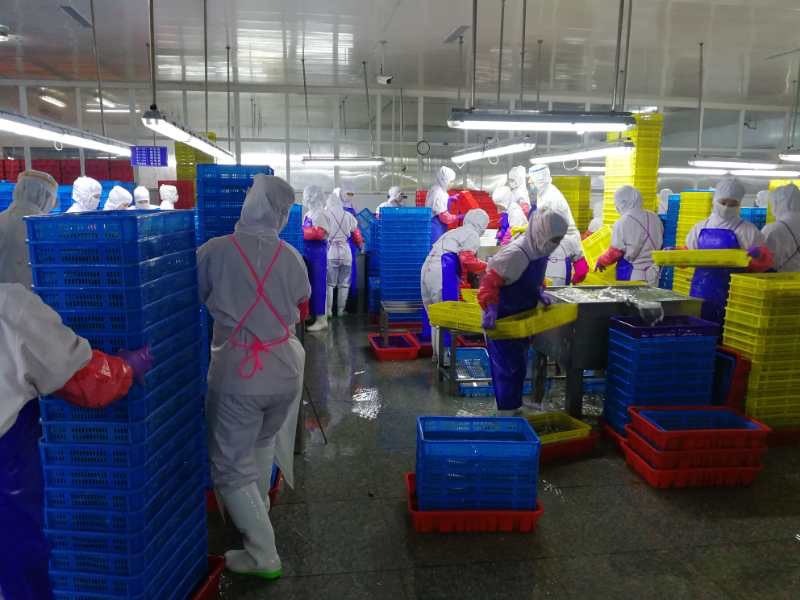
Perhaps the only thing tougher than interviewing workers in China about human rights is doing the same in North Korea.
Still, it seemed worth trying because it might shed new light on the experiences of thousands of relatively invisible people who, as it turns out, provide much of the seafood consumed in the U.S. and Europe. What we found was chilling: women held captive in processing plants in China, dispatched there by the North Korean government, only to face violence, wage theft and rampant sexual abuse. And much of the seafood coming from these plants supplies major American companies, which is a violation of U.N. sanctions and the 2017 U.S. Countering America’s Adversaries Through Sanctions Act, which established a “rebuttable presumption” categorizing work by North Koreans as forced labor unless proven otherwise, and levying fines on companies that import goods tied to these workers.
An investigation from The Outlaw Ocean Project revealed that fifteen seafood-processing plants together seem to have used more than a thousand North Korean workers since 2017. Ten of these plants have, in the same timeframe, cumulatively shipped more than 120,000 tons of seafood to more than seventy American importers, which supplied grocery stores including Walmart, Giant, ShopRite, and Weee! This seafood also went to importers that sent the products to restaurant chains including McDonald’s and Sysco—which supplies nearly half a million restaurants, as well as U.S. public schools, military bases and the U.S. Congress—and to an importer who supplies the cafeterias of the E.U. Parliament.
Such revelations were tough to land because Western journalists are restricted in China and barred from entering North Korea, whose citizens are prohibited from talking freely to reporters.
In late 2023, I set out to find ways around these obstacles. I hired a team of investigators in South Korea who help new organizations report on North Korea. The investigators have contacts across the border whom they employ to get information out of the country. The investigators and their contacts worked to compile a list of two dozen North Koreans who had been dispatched to China, most of whom have since returned home; the workers and managers were a range of ages, came from a variety of regions in the country, and had worked at half a dozen different Chinese factories. The investigator’s contacts met with the workers in secret, often in open fields or on the street, where it is tougher for security agents to listen in on conversations.
The workers were told that their responses would be shared publicly by a U.S. media outlet. They faced legitimate risk; if they were caught, experts told me, they could be executed. But they agreed to talk because they want the world to know what happens to them in China. The North Korean contacts transcribed their answers by hand, and then sent photos of the questionnaires, using encrypted communication channels, to the investigators, who sent them to me. Because of these layers of protection, it is impossible to fully verify what was said. But the responses were vetted by experts to make sure that they line up with what is known about the program, and with other interviews of North Korean defectors.
The investigators recently checked in on the interviewers and interviewees, and everyone was safe.
More Must-Reads from TIME
- Cybersecurity Experts Are Sounding the Alarm on DOGE
- Meet the 2025 Women of the Year
- The Harsh Truth About Disability Inclusion
- Why Do More Young Adults Have Cancer?
- Colman Domingo Leads With Radical Love
- How to Get Better at Doing Things Alone
- Michelle Zauner Stares Down the Darkness
Contact us at letters@time.com